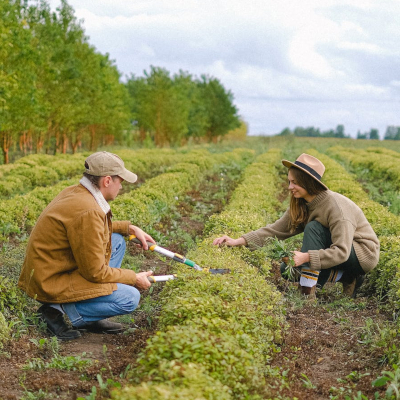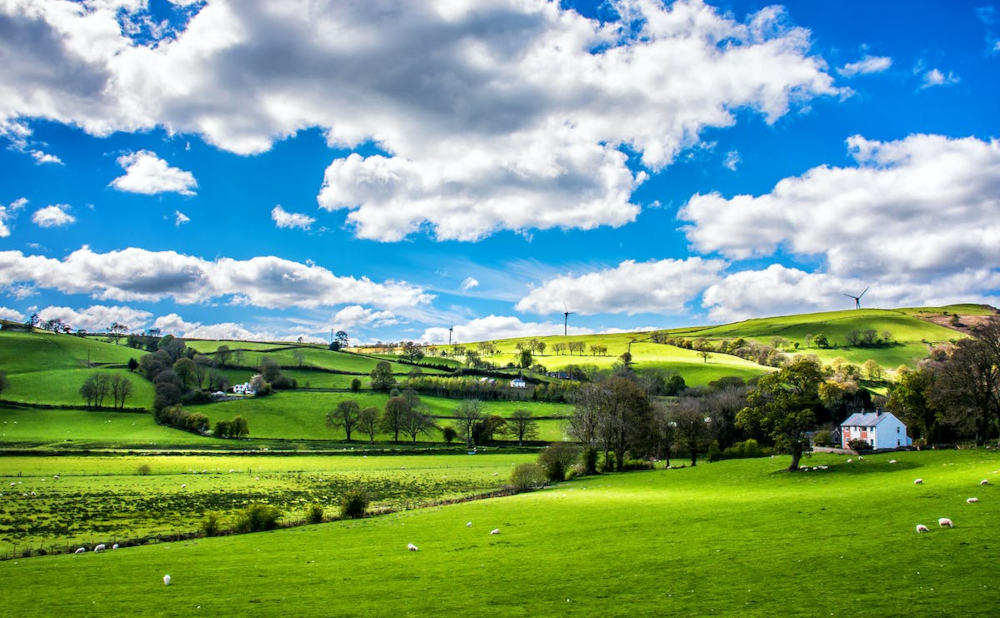Cultivating Change: How Regenerative Agriculture is Reshaping Farming Practices |
 Lifestyle
Lifestyle
Regenerative agriculture is a comprehensive approach to farming that aims to regenerate and improve the health of the soil, the environment, and communities. It goes beyond sustainable farming, which simply aims to maintain the current state of the land. Instead, regenerative agriculture seeks to actively improve the land by using techniques that are like natural processes and cycles.
This type of agriculture focuses on building healthy soil, which in turn leads to healthier plants, animals, and ultimately, healthier people. It involves practices such as crop rotation, cover cropping, composting, and reduced tillage, which all work together to improve soil health and biodiversity.
Traditional farming practices, such as heavy use of chemical fertilizers and pesticides, have led to the degradation of soil health. This has resulted in decreased crop yields, loss of biodiversity, and increased erosion. On the other hand, regenerative agriculture offers a range of benefits for both the environment and farmers.
First and foremost, regenerative agriculture helps to rebuild healthy soil. By using techniques that promote soil health, such as cover cropping and reduced tillage, regenerative farmers are able to increase the organic matter in the soil, which improves its ability to hold water and nutrients. This results in more resilient crops that are better able to withstand extreme weather conditions.
Additionally, regenerative agriculture helps to reduce the use of chemicals on farms. By building a diverse ecosystem, the need for chemical fertilizers and pesticides is greatly reduced. This not only benefits the environment but also the health of farmers and consumers.
Furthermore, regenerative agriculture can also play a crucial role in mitigating climate change. Healthy soil acts as a carbon sink, storing carbon from the atmosphere. By promoting healthy soil, regenerative farming practices can help to reduce the amount of carbon in the atmosphere and slow down the effects of climate change.
Regenerative agriculture is reshaping farming practices in many ways. One of the key changes is a shift away from monoculture and towards diversity. Monoculture, the practice of growing a single crop on a large scale, has been the norm in traditional farming. However, this leads to a loss of biodiversity and can make crops more vulnerable to pests and diseases. Regenerative farmers, on the other hand, use techniques such as crop rotation and intercropping to promote diversity and improve soil health.
Additionally, regenerative agriculture also encourages the use of natural fertilizers, such as compost and manure, instead of chemical fertilizers. This not only reduces the use of harmful chemicals but also helps to improve soil health and biodiversity.
Moreover, regenerative agriculture also promotes a more holistic approach to farming. Rather than viewing the farm as a separate entity, regenerative farmers see themselves as part of a larger ecosystem. This means considering the impact of farming practices on the surrounding environment, including water sources and wildlife.
Regenerative agriculture is a promising solution to the environmental challenges facing our world today. By focusing on rebuilding and improving the health of the land, this practice is reshaping traditional farming practices and creating a more sustainable and resilient future for both farmers and the environment. As consumers, we can also play a role in supporting regenerative agriculture by choosing to buy products from regenerative farms and supporting policies that promote sustainable farming practices. Together, we can cultivate change and create a healthier planet for generations to come.
Thank you for visiting us. Please visit us again. You are always welcome.
AND:
Remember! At SurfSideSafe, we are here to make your life much better.
Join SurfSideSafeCreating an account with SurfSideSafe is very easy.In a few minutes, you will have the best Social Media experience you have ever had in your life.  |

A calmer, safer, easier place to connect

Creating an account with SurfSideSafe is very easy.
In a few minutes, you will have the best Social Media experience you have ever had in your life.
